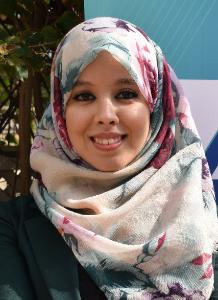Comptes-rendus d'événement
The persistence of social and economic inequalities for more than a decade after the 2011 uprisings constitutes one of the most important challenges facing development efforts, state building, and enhancing social cohesion in North Africa. Although inequalities are considered as one of the root causes behind the 2011 events, the question remains open about the extent to which policies and reforms introduced by the post 2011 ruling elites have contributed in dealing with this phenomenon in a way that responds to the growing demand for social justice, equality before the law, and access to basic rights and services.
To shed some light on this question, the symposium starts from the central premise according to which understanding the multidimensional forms and facets of inequality in the region is only possible through an evaluation of the policies of distribution and redistribution that shaped the state building process in the post-colonial era.
The aim is to trace these inequalities back and determine whether they originated from the state formation process, or are merely side effects of the political and economic choices made in the post-independence era? The answer to this question is crucial not only for determining the nature of disparities, their forms, and levels, but also for assessing the various redistribution policies and programs that were adopted during this stage. Indeed, if inequalities were part of the conflict over power in the early years of independence, they would be a political problem, otherwise they would be a mere technical issue.
1. How to Understand Inequalities in North Africa?
Inequalities have undoubtably always existed in the modern history of North African societies, although many of their manifestations were often invisible in a social system presented as part of the natural state of affairs. However, due to the profound social and cultural transformations, driven by political and economic openness, improved education, and healthcare systems, inequalities have progressively become more visible than ever before.
The study of inequalities in the region faces many difficulties and challenges, some of which are related to identifying concepts that frame the problem of disparities, while others are related to the methodological tools used to measure such a complicated phenomenon. Indeed, while many of the international indexes of measuring disparities rank most countries of the region (Morocco, Egypt, Tunisia, and Algeria) as countries with moderate level of inequality, the social and political instability and the escalation of the protest wave that reached its peak in 2011 cast doubt on the reliability of these indexes. This paradoxical situation has led some researchers and international institutions to describe the issue of inequality in the Arab region as a puzzle[1].
Although inequalities are widely perceived as an obstacle to the development strategies and a threat to social cohesion, there is no consensus among political actors and social scientists alike, on how to effectively mitigate their negative impact. The idea of equality per se does not seem to be an adequate recipe. In fact, beyond the broader agreement among philosophies on the importance of equality as a moral principle, the level of equality required in building a sustainable social system remains highly controversial.
2. Redistributive Policies and the Challenge of Confronting Inequalities
The second panel of the symposium deals with inequalities in the Maghreb countries from the perspective of the redistribution policies that have been implemented over the last few decades. Although this question may seem elementary and simple, it is very relevant when it comes to understanding both causes and forms of disparities in the region, but also in assessing the effectiveness of the measures taken to address them, as part of the political and economic reforms introduced in the wake of the 2011 uprisings.
The aim of the above question is to untangle the roles social programs and fiscal policies adopted in the region have been playing in regulating the dynamics of state-society interaction, whether in terms of slowing down or postponing reform in rentier States where there is almost no taxation (Libya and Algeria), or addressing demands for reform in countries whose public finances largely depends on taxation (Morocco, Tunisia, and Egypt).
From this standpoint, this panel seeks to address the issue of inequalities in development strategies in the region, through two intertwined levels: on the one hand it seeks to analyze economic and social policies, the significance of which can only be explored within a relatively long-time frame. For example, the debate on the New Development Model in Morocco may serve as a starting point for understanding the place of inequality related issues in the agendas of different stakeholders of development policies in Morocco.
The second level relates to analyzing the issue of disparities through the lens of public policies adopted by different governments within the time frame of their electoral mandate. This distinction between long-term strategic timeframe and short-term political framework linked to elections, allows to be shed more light on the question related to the causes of disparities in the countries of the region, and to determine whether they are linked to the context of State building process or are merely manifestations of political and economic circumstantial constraints of governmental action.
3. Development, Inequality Reduction Policies and the Rise of Global Uncertainty
Countries of North Africa have been experiencing multidimensional, social and economic transformations over the last few decades, which seem to have resulted in deepening social and spatial disparities and reduced the ability of public action to reduce inequalities. Indeed, Covid-19 crisis has shown how vulnerable are both States and societies to crises, and how unequal is the burden distributed[2]. It was a moment of truth that revealed that the post-colonial state-building process, and the economic, bureaucratic, and political structures that came with it perpetuated inequality, within societies of the region.[3]
In light of the current international and regional context, shaped by the threats associated with an unprecedented level of global uncertainty (climate changes, scarcity of natural resources, increasing risks associated with natural disasters…etc), the demand for social justice has been putting a major pressure on political regimes. As a matter of fact, inequalities are increasingly becoming a driving force of various forms of virtual protests and source of social tensions that cannot be easily dealt with by technical solutions or slimmed down reforms. This panel is expected to explore the various challenges and risks associated with this context of global uncertainty, that makes strategies of development and inequality reduction an increasingly uncharted journey.
The conference is organized by the Center for Studies and Research in Social Sciences in partnership with the Konrad Adenauer Foundation. It is part of the academic project of the International Working Group in the State, Society and Dynamics of Social Change in North Africa supported by the two institutions. It offers a unique opportunity for social scientists, political actors, governmental officials, decision makers and civil society actors from and of North Africa to debate on issues related to socioeconomic and political dynamics in the region.
Conference coordinators:
Mohamed El Hachimi, Senior Research Fellow (CERSS).
Larbi Sadiki, Middle East Council, Doha.
Abir Ibourk, Konrad Adenauer Stiftung, Morocco.
Important Dates:
April 15, 2024: launching the call for papers.
June 21, 2024: Deadline for submitting the abstract: A one-page abstract in Word.doc format, Times New Roman 12, 1.5 spacing size that highlights the importance of the subject, and specifies the theory (ies), the method (s) and the data, as well as the expected results and the issues to be discussed.
June 30, 2024: Notification of the selected abstracts.
October 20, 2024: Deadline for the submission of the final version.
November 9-10, 2024: Conference holding.
Abstracts should be sent to: conferencenorthafrica@gmail.com
Submission Rules:
Abstracts:
- Title
-Name of Author, status, affiliation, email
-Abstract (1 page)
-key words
-12 Times New Roman, simple spacing
Final Papers :
-The final papers should be between 7 000 and 9 000 words, without counting the abstract and the bibliography.
-Format: 12 Times New Roman, simple spacing, margins 2,5.
-Titles and subtitles : 1., 1.1., 1.2., 2., 2.1., 2.2., etc.
- The paper should be sent in Word Format.
- Bibliography: The bibliography should classified in alphabetical order, w Author’s Name, title (book or article), publishing house, date ; and be classified in alphabetical order.
________________________________________________
[1] Krafft, Caroline; Davis, Elizabeth E. “The Arab Inequality Puzzle: The Role of Income Sources in Egypt and Tunisia” Working Paper GLO Discussion Paper, No. 405 accessed at: The Arab Inequality Puzzle: The Role of Income Sources in Egypt and Tunisia (econstor.eu). see also “Inequality, Uprisings, and Conflict in the Arab World” International Bank for Reconstruction and Development / The World Bank, 2015, accessed at: World Bank Document
[2] Sadiki Larbi and Laila Saleh, The Covid-19 pandemic and the possibilities for Arab “risk society”, The COVID-19 pandemic and possibilities for Arab ‘risk society’ | Melbourne Asia Review
[3] Ibid.
Thèmes
Durchsetzen statt Nachgeben
Digitale Zukunft gestalten: Warum ein eigenständiges Digitalministerium unverzichtbar ist
Bundestagswahl 2025: Frankreich hofft auf Politikwechsel in Deutschland
Kommunen im (demografischen) Wandel – Strategien zur Minderung regionaler Ungleichgewichte
Kein eindeutiger Sieger bei den Parlamentswahlen in Kosovo: Die Regierungsbildung wird kompliziert




